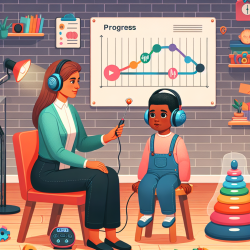In the ever-evolving landscape of mental health treatment, online therapy has emerged as a promising alternative to traditional face-to-face therapy. A recent study, "Role of the Working Alliance on Treatment Outcome in Tailored Internet-Based Cognitive Behavioural Therapy for Anxiety Disorders: Randomized Controlled Pilot Trial," sheds light on a critical factor that can significantly impact the success of online therapy: the working alliance between therapist and client.
Understanding the Working Alliance
The working alliance, also known as the therapeutic alliance, is a collaborative relationship between therapist and client. It comprises three main components:
- Tasks: The specific activities and interventions that are part of the therapy.
- Goals: The agreed-upon objectives of the therapy.
- Bond: The personal connection and trust between therapist and client.
Previous research has shown that a strong working alliance is a robust predictor of positive treatment outcomes in face-to-face therapy. However, its role in Internet-based cognitive behavioral therapy (ICBT) has been less clear—until now.
Key Findings from the Study
The study investigated whether the working alliance could predict treatment outcomes in tailored ICBT for anxiety disorders. Here are the key findings:
- Working alliance measured early in treatment (week 3) significantly correlated with positive treatment outcomes.
- Expected working alliance before treatment did not significantly predict outcomes.
- Alliance ratings increased from pre-treatment to mid-treatment, indicating that a strong working alliance can be formed online.
Implications for Practitioners
These findings have several important implications for practitioners offering online therapy:
- Focus on Early Alliance: Building a strong working alliance early in the treatment process can significantly impact outcomes. Prioritize establishing trust and clear communication with your clients from the start.
- Tailor Your Approach: Personalized, tailored ICBT treatments that address the unique needs and preferences of each client can help foster a stronger working alliance.
- Continuous Monitoring: Regularly assess the strength of the working alliance throughout the treatment to make necessary adjustments and maintain a positive therapeutic relationship.
Encouraging Further Research
While this study provides valuable insights, it also highlights the need for further research to fully understand the dynamics of the working alliance in online therapy. Practitioners are encouraged to stay informed about the latest research and continuously refine their approaches based on emerging evidence.
To read the original research paper, please follow this link: Role of the Working Alliance on Treatment Outcome in Tailored Internet-Based Cognitive Behavioural Therapy for Anxiety Disorders: Randomized Controlled Pilot Trial










